#i apologize to nobody
Text
Oh my god I forgot I made this lmao BYE
65 notes
·
View notes
Text
“why are you only posting homestar runner content” what if you hypothetically exploded
#fortune cookie#homestar runner#cookies fortune cookie fortunes (with cookie masterson)#i have a HYPERFIXATION. okay#i apologize to nobody
12 notes
·
View notes
Text
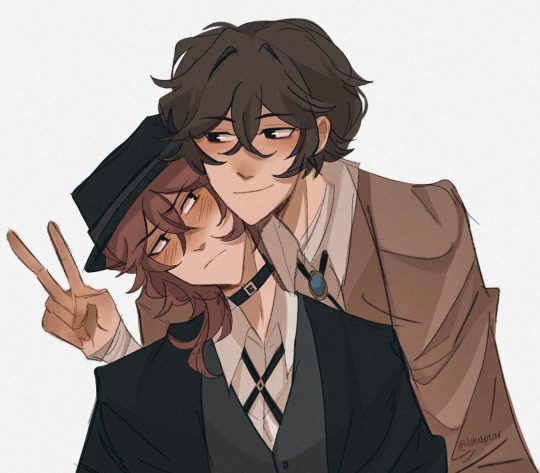
these losers again
#sorry for literally drawing never ever. apology skk for u guys#ALSO WAIT WAIT nobody talks abt this but#we need to enforce the fact that dazai has these large soft gorgeous brown doe eyes and chuuya has the vulpine sharp sullen dark cat eyes#skk both have brown eyes guys. not enough ppl know this💔#anyway enough abt that before i go on an entire tangent abt how bones fucking RUINED everyones character designs#bungou stray dogs#bungo stray dogs#bsd#chuuya nakahara#nakahara chuuya#dazai osamu#osamu dazai#skk#soukoku#lotus draws
4K notes
·
View notes
Text

#torchwood#doctor who#saw someone do this for dungeon meshi and decided the whoniverse needed one#i hope nobody has done this already#ianto jones#tosh sato#owen cooper#captain jack harkness#the doctor#martha jones#rose tyler#bill potts#missy doctor who#danny pink#clara oswald#amy pond#rory williams#they're all autistic you're honour#there's more but i'd be going on for ages#angelofbrahmaaa#formal apology to other whoniverse media not included#i have not yet watched them so didn't know whether to add them
1K notes
·
View notes
Text
None Of You Know What Haiku Are
I'm going to preface this by saying that i am not an expert in ANY form of poetry, just an enthusiast. Also, this post is... really long. Too long? Definitely too long. Whoops! I love poetry.
If you ask most English-speaking people (or haiku-bot) what a haiku is, they would probably say that it's a form of poetry that has 3 lines, with 5, and then 7, and then 5 syllables in them. That's certainly what I was taught in school when we did our scant poetry unit, but since... idk elementary school when I learned that, I've learned that that's actually a pretty inaccurate definition of haiku. And I think that inaccurate definition is a big part of why most people (myself included until relatively recently!) think that haiku are kind of... dumb? unimpressive? simple and boring? I mean, if you can just put any words with the right number of syllables into 3 lines, what makes it special?
Well, let me get into why the 5-7-5 understanding of haiku is wrong, and also what makes haiku so special (with examples)!
First of all, Japanese doesn't have syllables! There's a few different names for what phonetic units actually make up the language- In Japanese, they're called "On" (音), which translates to "sound", although English-language linguists often call it a "mora" (μ), which (quoting from Wikipedia here) "is a basic timing unit in the phonology of some spoken languages, equal to or shorter than a syllable." (x) "Oh" is one syllable, and also one mora, whereas "Oi" has one syllable, but two moras. "Ba" has one mora, "Baa" has two moras, etc. In English, we would say that a haiku is made up of three lines, with 5-7-5 syllables in them, 17 syllables total. In Japanese, that would be 17 sounds.
For an example of the difference, the word "haiku", in English, has 2 syllables (hai-ku), but in Japanese, はいく has 3 sounds (ha-i-ku). "Christmas" has 2 syllables, but in Japanese, "クリスマス" (ku-ri-su-ma-su) is 5 sounds! that's a while line on its own! Sometimes the syllables are the same as the sounds ("sushi" is two syllables, and すし is two sounds), but sometimes they're very different.
In addition, words in Japanese are frequently longer than their English equivalents. For example, the word "cuckoo" in Japanese is "ほととぎす" (hototogisu).
Now, I'm sure you're all very impressed at how I can use an English to Japanese dictionary (thank you, my mother is proud), but what does any of this matter? So two languages are different. How does that impact our understanding of haiku?
Well, if you think about the fact that Japanese words are frequently longer than English words, AND that Japanese counts sounds and not syllables, you can see how, "based purely on a 17-syllable counting method, a poet writing in English could easily slip in enough words for two haiku in Japanese” (quote from Grit, Grace, and Gold: Haiku Celebrating the Sports of Summer by Kit Pancoast Nagamura). If you're writing a poem using 17 English syllables, you are writing significantly more content than is in an authentic Japanese haiku.
(Also not all Japanese haiku are 17 sounds at all. It's really more of a guideline.)
Focusing on the 5-7-5 form leads to ignoring other strategies/common conventions of haiku, which personally, I think are more interesting! Two of the big ones are kigo, a season word, and kireji, a cutting word.
Kigo are words/phrases/images associated with a particular season, like snow for winter, or cherry blossoms for spring. In Japan, they actually publish reference books of kigo called saijiki, which is basically like a dictionary or almanac of kigo, describing the meaning, providing a list of related words, and some haiku that use that kigo. Using a a particular kigo both grounds the haiku in a particular time, but also alludes to other haiku that have used the same one.
Kireji is a thing that doesn't easily translate to English, but it's almost like a spoken piece of punctuation, separating the haiku into two parts/images that resonate with and add depth to each other. Some examples of kireji would be "ya", "keri", and "kana." Here's kireji in action in one of the most famous haiku:
古池や 蛙飛び込む 水の音
(Furu ike ya kawazu tobikomu mizu no oto)
(The old pond —
A frog jumps in
The sound of the water.)
You can see the kireji at the end of the first line- 古池や literally translates to "old pond ya". The "ya" doesn't have linguistic meaning, but it denotes the separation between the two focuses of the haiku. First, we are picturing a pond. It's old, mature. The water is still. And then there's a frog! It's spring and he's fresh and new to the world! He jumps into the pond and goes "splash"! Wowie! When I say "cutting word", instead of say, a knife cutting, I like to imagine a film cut. The camera shows the pond, and then it cuts to the frog who jumps in.
English doesn't really have a version of this, at least not one that's spoken, but in English language haiku, people will frequently use a dash or an ellipses to fill the same role.
Format aside, there are also some conventions of the actual content, too. They frequently focus on nature, and are generally use direct language without metaphor. They use concrete images without judgement or analysis, inviting the reader to step into their shoes and imagine how they'd feel in the situation. It's not about describing how you feel, so much as it's about describing what made you feel.
Now, let's put it all together, looking at a haiku written Yosa Buson around 1760 (translated by Harold G. Henderson)
The piercing chill I feel:
my dead wife's comb, in our bedroom,
under my heel
We've got our kigo with "the piercing chill." We read that, and we imagine it's probably winter. It's cold, and the kind of cold wind that cuts through you. There's our kireji- this translation uses a colon to differentiate our two images: the piercing chill, and the poet stepping on his dead wife's comb. There's no descriptions of what the poet is feeling, but you can imagine stepping into his shoes. You can imagine the pain he's experiencing in that moment on your own.
"But tumblr user corvidcall!" I hear you say, "All the examples you've used so far are Japanese haiku that have been translated! Are you implying that it's impossible for a good haiku to be written in English?" NO!!!!! I love English haiku! Here's a good example, which won first place in the 2000 Henderson haiku contest, sponsored by the Haiku Society of America:
meteor shower . . .
a gentle wave
wets our sandals
When you read this one, can you imagine being in the poet's place? Do you feel the surprise as the tide comes in? Do you feel the summer-ness of the moment? Haiku are about describing things with the senses, and how you take in the world around you. In a way, it's like the poet is only setting a scene, which you inhabit and fill with meaning based on your own experiences. You and I are imagining different beaches, different waves, different people that make up the "our" it mentioned.
"Do I HAVE to include all these things when I write haiku? If I include all these things, does that mean my haiku will be good?" I mean, I don't know. What colors make up a good painting? What scenes make up a good play? It's a creative medium, and nobody can really tell you you can't experiment with form. Certainly not me! But I think it's important to know what the conventions of the form are, so you can appreciate good examples of it, and so you can know what you're actually experimenting with. And I mean... I'm not the poetry cops. But if you're not interested in engaging with the actual conventions and limitations of the form, then why are you even using that form?
I'll leave you with one more English language haiku, which is probably my favorite haiku ever. It was written by Tom Bierovic, and won first place at the 2021 Haiku Society of America Haiku Awards
a year at most . . .
we pretend to watch
the hummingbirds
Sources: (x) (x) (x) (x) (x) (x)
Further reading:
Forms in English Haiku by Keiko Imaoka
Haiku: A Whole Lot More Than 5-7-5 by Jack
How to Write a Bad Haiku by KrisL
Haiku Are Not a Joke: A Plea from a Poet Who Has Had It Up to Here by Sandra Simpson
Haiku Checklist by Katherine Raine
#poetry#haiku#writing#literature#anime life#long post#i want to apologize but i had to get something off my chest#and the thing was. i love haiku#and when i see posts on here about haiku. i get so angy.#well ok i really get more disappointed bc nobody is really engaging with the form on its own terms#anyway i hope you enjoy some of my favorite haiku because theyre in there!!!!!#i didnt really get into the history of haiku. and i also did not get into why i got really into it#but i will say that i was really inspired by Jacob Geller's video A Thousand Ways of Seeing a Forest#which is a lot about translation#(which i mean. as an interpreter AND a poetry-enjoyer. really appealed to me lol)
10K notes
·
View notes
Text
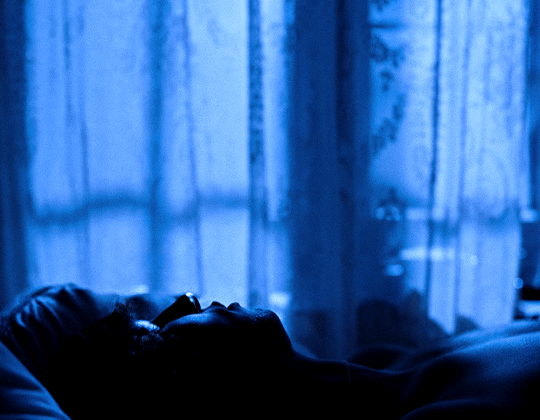

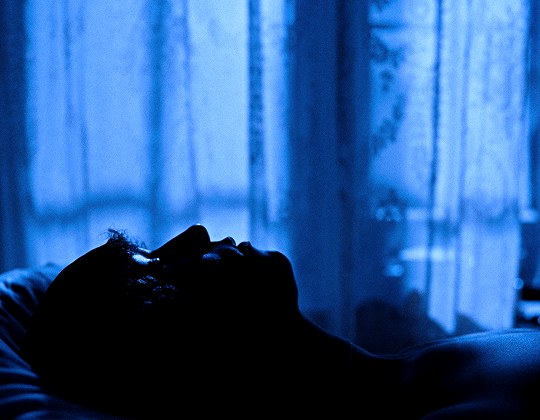
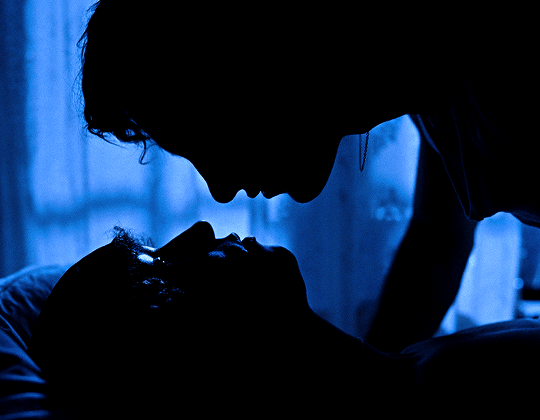
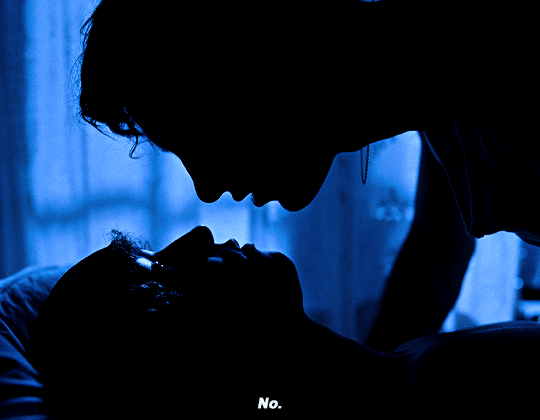
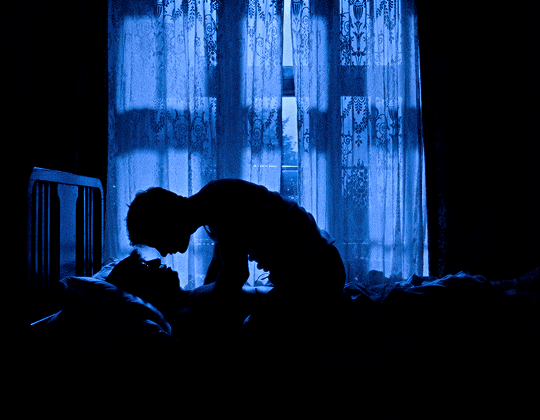
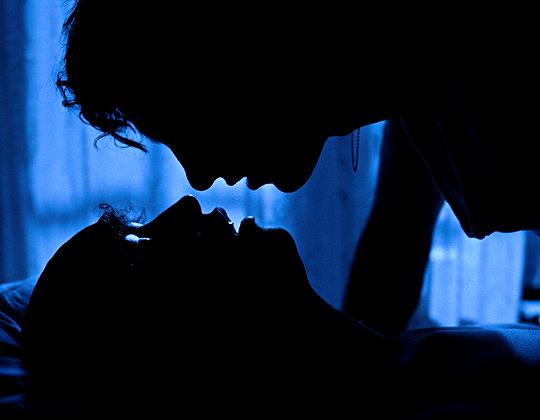

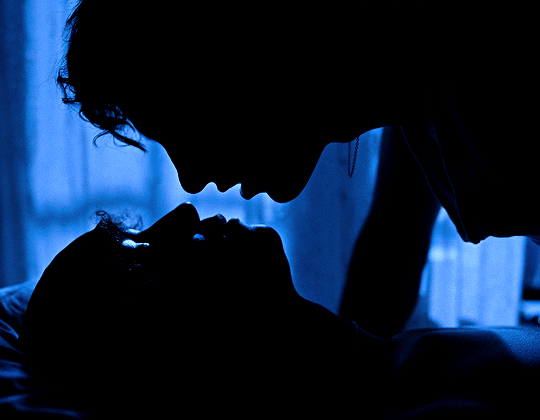


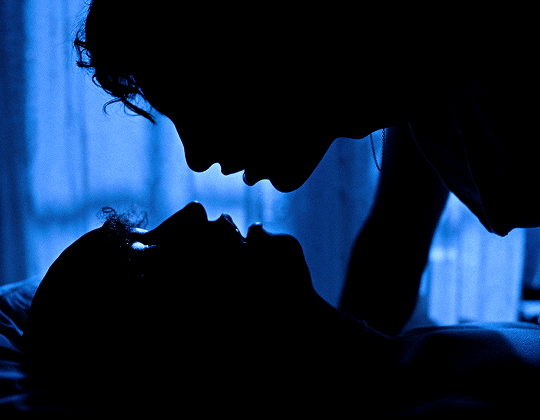
SALTBURN
2023 — dir. Emerald Fennell
#filmedit#farleigh start#oliver quick#saltburn#archie madekwe#barry keoghan#NOBODY MOVE#i heard y'all freaks#this is extremely long....... just a warning not an apology btw#gif
646 notes
·
View notes
Text
I keep seeing people say that Kaveh and Alhaitham are incompatible and I'm just like... no u don't get it. They are so compatible that I'm convinced they're literally made for each other. They're both so incredibly stubborn but underneath all the bickering, they clearly have a ton of respect for each other and recognize each other's intelligence. It's because of both that mutual respect and their directly opposing worldviews and ideals that make them both pretty much the only people that are capable of influencing good and meaningful change in the other. Kaveh brings the empathy and artistry that Alhaitham needs while Alhaitham keeps Kaveh grounded. Alhaitham always seems so much more relaxed in every scene where he interacts with Kaveh. Alhaitham is pretty much the only person that Kaveh doesn't feel the need to go full people-pleaser with (excluding the occasional client that really manages to piss him off). They're actually perfect for each other.
#sorry for being unhinged about them but. theyre soulmates#nobody gets them like i get them /j#also this all isnt even considering the meta stuff that has me convinced that some hyv staff wanted them to be canon#the matching constellations... their complimentary kits... their color schemes being the inverse of each others...#also. their fighting styles being opposites. and also seemingly going against their ideals#like alhaitham being logical and collected but then his attack sequence is just completely unrestrained#and kaveh being the opposite. prioritizing emotions and stuff. but then his attacks being very calculated#maybe im actually insane but i think that shows the affect they have on each other#started the tags off apologizing for being unhinged and then immediately started being unhinged again. so. sorry again dksjfks#genshin#genshin impact#kaveh#alhaitham#kavetham#haikaveh#seri speaks#analysis
2K notes
·
View notes
Text

I should be counting blessings
something is better than nothing
Isn't it, isn't it, isn't it?
#hermitcraft#pearlescentmoon#double life#life series#myart#lyric: nobody - The crane wives <- Obviously it had to be them#i made the imagen to big i apologize
204 notes
·
View notes
Text
Sanji and Usopp during The Sabaody Incident™ won't leave my mind.
Usopp standing in front of Sanji protectively because he is wounded and he can't fight, so Usopp will do it for him ("I'll do what you can't do").
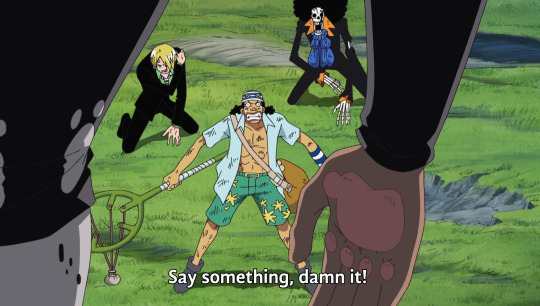
There is just something about Sanji's expression when he realizes he might actually lose Usopp. This is my interpretation, at least. He is literally frightened.
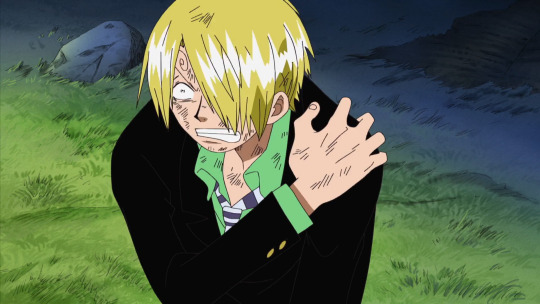
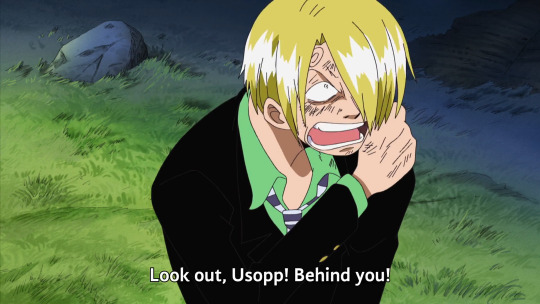
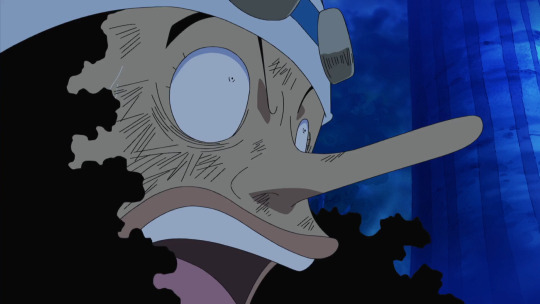
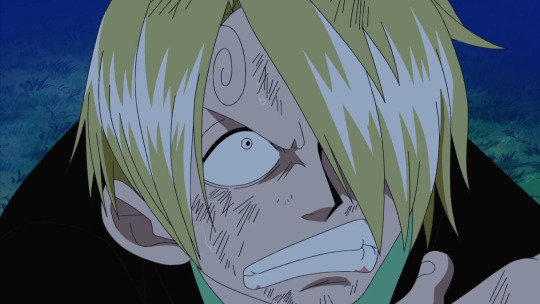
Usopp helping Sanji stand up to run away. This is crucial for something I want to point out later: Sanji needs help to stand up. (Also, Brook disappears trying to protect them both and saying he will do anything to save them even if it costs him his life. I am feeling sick).
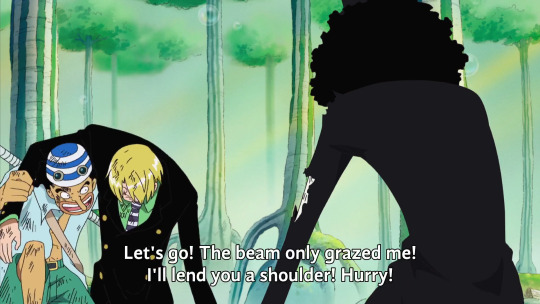
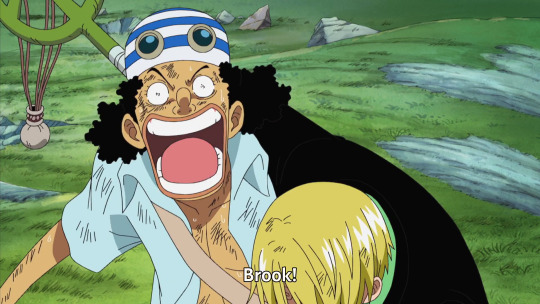
Sanji being self-sacrificing and blaming himself for not being able to protect them/act sooner is not new. But he does manage to gain the strength to fight when Usopp is the only one left with him and the possibility of losing him is even more real now.
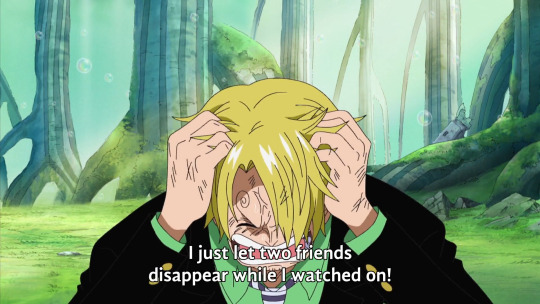
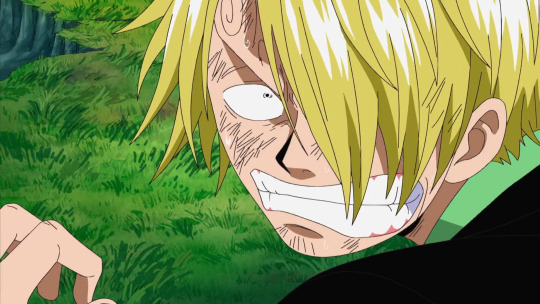
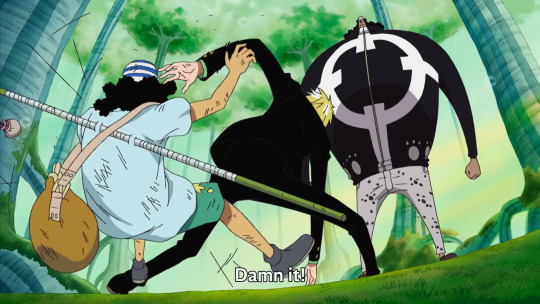
The thing that I love the most about this is not Sanji sacrificing himself for Usopp, because he does that. He is like that. But Usopp not running away or moving in the slightest because he refuses to leave Sanji on his own.
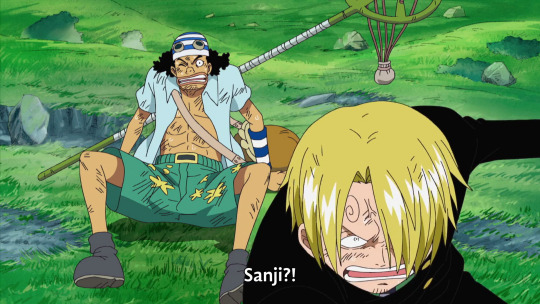
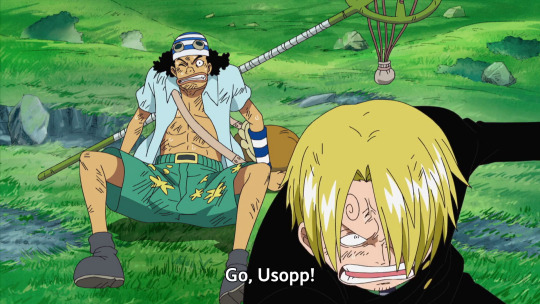
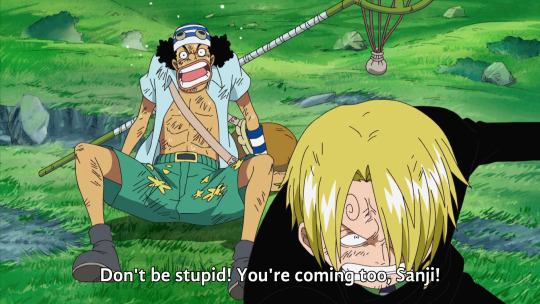
Something I'd like to point out too is that Sanji actually touches Kuma before Usopp disappears. He tries to fight and protect him and Kuma could've easily sent Sanji to Momoiro Island right away, and yet Sanji was just sent flying far from the scene and forced to see Usopp disappear in front of him.
And I am not saying that "not being able to protect both Brook and Usopp (especially Usopp) is needed for Sanji to realize he has to become stronger and find more reasons to go back with the crew" but not being able to protect both Brook and Usopp (especially Usopp) is needed for Sanji to realize he has to become stronger and find more reasons to go back with the crew.
Not to mention that we can't deny (right after Water 7/Enies Lobby) that Usopp is one of Sanji's strongest bonds within the crew. This specific scene focusing on them both is more than enough to prove it.
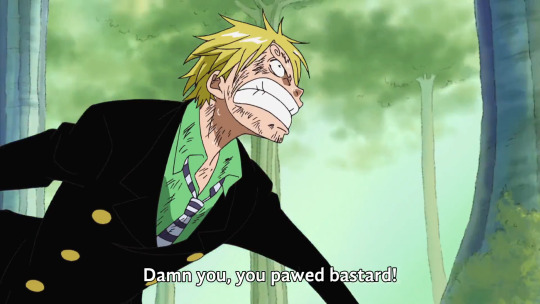
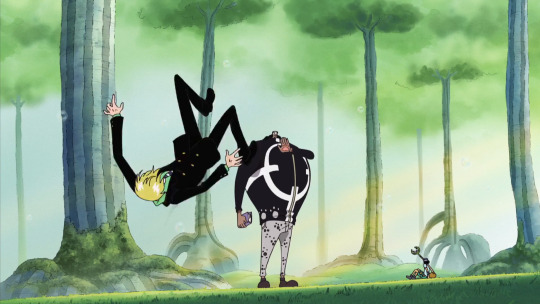
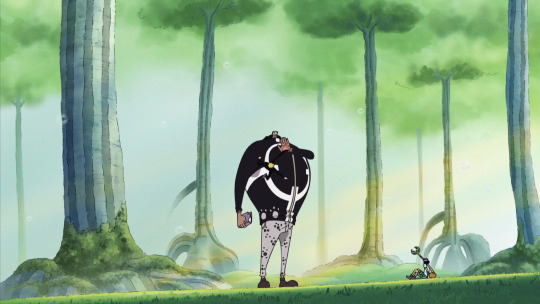
Sanji seeing Usopp disappear in front of his eyes without being able to do anything to save him.
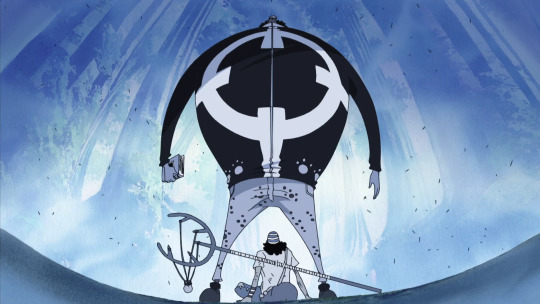
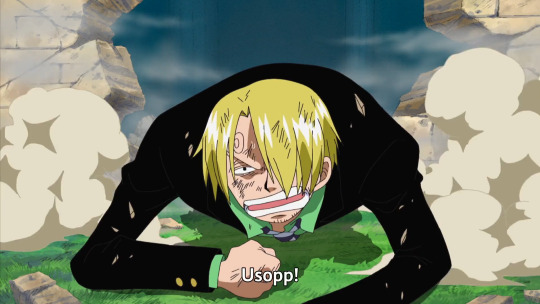
Remember what I said about Sanji needing help to stand up seconds ago? Well. This is him the moment Usopp disappears. What adrenaline and the power of love do to a mf.

They are so "I can lose everything, but not you. Oh God, not you" shaped.
#sorry for bringing up sabaody i am sure nobody wants to think about it#but they mean the world to me and there is SO MUCH to unpack#we don't talk enough about this i think ?????#sanji spending two whole years having nightmares about not being able to save usopp. about seeing usopp disappearing in front of him#he still has them btw#sanji having to sleep with usopp post-ts because he is afraid of waking up and seeing he is gone#also i am having thoughts about brook protecting them and#and brook saying he will do anything to save them#because sanji has only heard that from zeff so......... so just thinking. i have thoughts. i told you brook is one of sanji's father figure#back to sanuso- thinking about how this whole scene despite having brook too is mainly focused on both sanji and usopp#thinking abt how the others disappear mostly focusing only on luffy's reactions but this emphasizes a lot sanji's attempts to save usopp#why would you give them a whole scene i am throwing up#sorry still thinking abt sanji apologizing to usopp for not being able to protect him or#or having nightmares he definitely has nightmares about it#and usopp just. staying with him and making him see that he is alright now. and letting him cry.#early post-ts kills me#still angry we don't have almost post-ts sanuso#i might start crying thinking abt them so it'll be better if just shut up and post this#one piece#black leg sanji#usopp#sanuso#sabaody
258 notes
·
View notes
Text
@mrghostrat This is now the third time since December that I'm writing about your middle-aged men and their middle-aged-man problems (1, 2). Please come collect them, because they're causing a disturbance.
Or, if you aren't able to wrangle them, then please enjoy this scene inspired by Chapter 10 of Big Name Feelings.
For everyone who hasn't already seen the top portion of this on Discord, know that this is set sometime after the con but before the big bang.
—
"I think your hair might be getting long enough to braid now."
Crowley's eyes snapped over to him. "Braid?"
Aziraphale blinked at the sharp question. "I didn't mean anything by it." He'd still never figured out quite where Crowley's gender identity lay, or if it changed day-by-day. He suspected Crowley's public presentation of his gender was either "whatever's simplest for everyone involved" (around people he didn't know but generally liked, like at the con) or "whatever causes the most problems for everyone involved" (like with a particularly annoying security guard that had left Aziraphale remembering that being middle-aged, white, and extremely stuffy in appearance was its own form of armor). Aziraphale's own perception of Crowley's gender was just "Crowley." What Crowley felt about it was something Aziraphale had never quite managed to parse out. "You can do whatever you like—"
"Do you know how?"
"How...?"
"To braid hair." Crowley's tone was oddly urgent. "Like for your nieces or cousins or—"
"—for crafting, yes. Tassels for bookmarks and such. You want me to—" Crowley practically flinging himself down onto the sofa next to him was answer enough. "Oh."
Crowley's hair really was barely long enough to braid, Aziraphale decided as he gently freed it from its elastic band. He ran his fingers through it slowly and carefully, easing out the light tangles from a day's confinement. Crowley slumped forward in boneless contentment, and Aziraphale had to switch to prickling the top of his scalp with his fingernails to get him to sit up straight enough for Aziraphale to work.
Aziraphale determined his gameplan, then, and gently eased up a few locks of hair at the crown of Crowley's head, smoothing down the top with the flat of his palm. He started working the strands into a French braid, taking it tiny piece by tiny piece to ensure every section was balanced in size. If Crowley were doing it himself, he suspected he'd get it done in just five messy joins, but every strand he brought in gave Aziraphale another excuse to run his fingertips along Crowley's scalp and he luxuriated in each opportunity. "Has anyone ever told you your hair is unreasonably thick?" he murmured, his voice huskier with fond affection than he'd intended. Crowley spared him from a tease by being too utterly sedated to manage more than a vague hum in response. Aziraphale smiled at that and kept his progress blissfully slow and methodical until he had no choice but to tie the braid off at the nape of Crowley's neck — half a French braid, half a ponytail made bushy from having had waves worked into it. He placed a soft kiss to the back of Crowley's head, padded by the thickest part of Crowley's braid and somehow all the more intimate for it. "All done, love."
Crowley leaned back against Aziraphale's chest, tilting back his head to look up at him with eyes made impossibly soft with contentment. "I'm never putting my own hair up again. Just hope you know that."
Aziraphale chuckled softly, just as fond. "I'll manage somehow, I suppose."
—
Crowley's boneless appreciation of the hair braiding had turned into boneless napping, and while Aziraphale enjoyed having Crowley fall asleep against him at certain times of day, he had never been one for naps himself and there was a limit to how long he could stay motionless sans entertainment before even he got antsy. He eased his way out from under Crowley, grateful the other man was a heavy sleeper even during the day, and was left deciding what quiet amusement he could pursue until whenever Crowley woke up and started making noises about dinner. He could always read some fanfics, of course, but his eyes couldn't help but be drawn towards his favorite muse.
His muse who had, he recalled, tempted him into joining a rigged bang and had talked him into getting a digital tablet. Aziraphale still planned to do his official art for it traditionally, because he was sure Crowley's writing would deserve no less... and, if he was allowed to be vain in the privacy of his own mind, because he still remembered the feeling he'd had when Crowley responded to his scans with barely coherent keysmashing. He wasn't in deferential awe of Crowley anymore, although he still loved his writing just as much, but part of him still hoped that Crowley might respond with just as much enthusiasm at getting to see the finished piece in person, textured paper and unprocessed colors and all. Well, assuming he could be gutsy enough to actually give it to him in person instead of just leaving it on the drafting table for him to find, which was really the more statistically likely result. But anyway.
But anyway.
His muse was sleeping in front of him, and a stylus on an iPad would make hardly any noise at all. And if he got good enough at using it, maybe he could draw some extra digital art to celebrate the fic as well.
In any case, sketching Crowley while he slept was one of life's little joys. He didn't think Crowley knew how often he did it, and that was probably for the best. If he did it all in his notebook, it would have been too easy for Crowley to flip through and find the sketches (and removing sheets would have felt damnably like a guilty conscience). With his iPad, however, he was safe to sketch as much as he liked and there was no real way for Crowley to stumble across it. Aziraphale willfully shoved aside the thought that that didn't really sound any less guilty and started setting stylus to screen. It wasn't long until he'd settled into a comfortable rhythm, his eyes flicking back and forth between the screen and where Crowley was lying face-down on the sofa, his new braid highlighted in a beam of afternoon sunlight.
Something Aziraphale did appreciate about digital art was that white could be layered on top of other colors and be shockingly vibrant, which wasn't an effect he could get easily with his beloved watercolors. Something else watercolors didn't give him was the ability to pick out very fine details, and as his sketch started coming together, he found that was exactly what he wanted to do now. While Crowley's hair was a vibrant red in his selfies or on stage, when he'd had the opportunity to run his fingers through every strand, he'd found that Crowley's hair was showing his age just as much as his own was.
The first day Aziraphale had found a grey hair had come as a shock. He'd naively assumed that with his hair being as pale as it was, even if it started greying, he might well never know. Instead, he found that the grey hairs' texture was frustratingly different from the strands that were still blond, and until they reached a critical mass fifteen long years later, they had an unfortunate tendency to stick out unattractively if his cut was anything less than perfect. He had become quite a regular at his barber's.
With Crowley's hair being as long as it was, his grey hairs had worked smoothly into his braid. From even the small distance from couch to armchair, they melded into the red strands perfectly... but Aziraphale had just spent long minutes twining them into neat twists and didn't need to see them now to know they were there. Aziraphale zoomed in close (another marked benefit of the digital display) and set his pen to a thin, sharp line, layering sleek silver strands into the red braid he'd drawn. Following the way they weaved around each other and dipped in and out of view felt delightfully meditative.
Eventually, Crowley made a soft snuffling snort-groan as he roused from his nap, slowly turning to unbury his face from the pillows. "Wha' time'zit?" he mumbled, patting around blindly for his cellphone.
"Coming up on 5:30 now," Aziraphale replied softly, trying not to startle him into full wakefulness too quickly. He rose and fetched Crowley's phone, placing it gently into his fumbling hand. "There you go."
"Mmrrr. Don't need it now." Crowley tucked the phone under his side in what Aziraphale would have guessed would be a very uncomfortable fashion but which Crowley did without even thinking. At least it wouldn't be going anywhere from there, Aziraphale supposed. "What're you doin'?" Crowley made grabby hands at the iPad Aziraphale had brought over with him.
Aziraphale handed over the iPad without even one thought, much less a second. "Oh, I was just waiting for you to wake up, really."
"...Angel." Crowley had zoomed out on the picture (with a completely unsurprising lack of propriety) and was now staring, frozen and much more awake, at the drawing of himself. "You aren't going to post this on Tumblr, are you?"
Aziraphale laughed at the sheer ridiculousness of that, despite the ripple of shock Crowley's tense tone had caused him. "Come, now. When have I ever posted a drawing of you, my dear?"
"When have you ever made a drawing of me?" Crowley retorted. He waved vaguely at the screen, accidentally sparing Aziraphale from having to answer. "I don't mind being old, but I don't want the world knowing my boyfriend thinks I'm old." His frazzled waving turned a little more flaily.
"Crowley..." Aziraphale gently took the tablet back from him and set it down on the floor so he could take Crowley's hand in both of his. "I assure you, I'm not the kind of artist who spends my time drawing things I don't think are beautiful. And that includes every detail I put in."
Aziraphale would have hoped that was obvious, really. The strands of hair he had drawn weren't brittle grey; they were molten silver. They caught the light like a precious metal woven like a ribbon into cinnabar-red hair. Crowley could have been a queen, fallen asleep after a long day in her finery. He could have been a fae whose very essence was beauty, sleeping with no fear that it would be stolen away because it couldn't.
He could have been an ordinary man, who was so deeply, truly loved that even his grey hairs seemed to shine like the soft gleam of a newly-forged star when they caught the last strong beams of afternoon sunlight shining in through the windows.
Aziraphale hoped Crowley could see it, too.
Crowley made a grumpy noise. "I still don't want it on Tumblr. — Not that I can tell you what to do with your art, but—"
Aziraphale interrupted him with a warm smile. "I don't want it on Tumblr, either. I drew this just for me."
"...really? Even though...?"
"Just for me," Aziraphale whispered in confirmation, his eyes seeking out Crowley's and saving him from having to finish that sentence. "I've only ever drawn you for me." I love you to the point of creation, his heart sang. It wasn't quite how that quote went, he knew. It was the only way it had ever gone, for him.
"Hn..." Crowley shifted to look at the iPad where it lay down on the floor. "I suppose... Well. Despite the subject matter, you drew it well, at least."
"Well, thank you for that," Aziraphale jibed back lightly, completely devoid of malice.
"Ngh, you can't blame me for feeling self-conscious about my greys when you haven't got any."
Aziraphale let out a huff of a laugh. "Oh, Crowley."
"What?" Crowley looked defensive, then abruptly switched to looking shrewd. "Wait. Do you dye them??" He leaned forward eagerly, like this was taboo knowledge.
"Oh, where was that compliment two decades ago? No, not at all. Do you know how long I spent getting over feeling self-conscious about them, and now for you to not even realize I have them?"
"No way. You've been holding out on me!" Crowley's eyes had a light in them that Aziraphale had seen sometimes — the look of someone who has been wanting something very much and thinks he's just figured out how to get it. Aziraphale drew back instinctively in trepidation. He had no idea what Crowley could possibly be wanting, though a fluttering feeling in his chest suggested that it was, in some way, him.
Ridiculous. As if they hadn't had sex already.
"I'm going to go get dinner started."
Crowley let out a whine that cut off abruptly enough that Aziraphale suspected he actually hadn't intended to make it.
Aziraphale paused. "What?"
"Ehhh... just envious, s'all."
Aziraphale took a moment to muse about whether Crowley knew the difference between "envious" and "jealous" and decided, firmly, that he had faith that he did. "Of what?" he asked with an incredulous laugh, since he still had no idea what "envious" could possibly apply to here.
"Negghhh, you've gotten to play with my hair enough to know I have greys, and I haven't gotten to touch yours once."
Aziraphale blushed darkly at that, remembering some choice occasions in which Crowley had gripped his hair tightly enough to hurt. He cleared his throat and opted not to mention them. "That feels much more like your fault than mine."
"Just... tryin'a respect your boundaries, angel."
"Why would that be a boundary?" Aziraphale asked, baffled.
"I asked for it and you haven't."
Aziraphale didn't quite remember it that way, but it was a fair enough interpretation from Crowley's point of view, he supposed. "Well, no. It sounds perfectly nice, but I'd hate to bore you with it. I know you're much more fidgety than I am."
"Not bored," Crowley insisted, his eyes urgent. "Never bored when it's you, angel. Siddown."
Aziraphale laughed breathily. "Too late. I'm already up to cook dinner."
"Angel."
"You'll just have to wait," Aziraphale teased in a singsong lilt, casting a smile back at Crowley over his shoulder.
Crowley flung himself back on the couch with an impatient whine, leaving Aziraphale feeling very smug about his attempt at whatever the romantic equivalent of foreplay was. Crowley sounded very much like he was being left with blue balls. "Bastard."
"Only as much as you deserve, my dear," Aziraphale sang back as he went into the kitchen, acutely aware of Crowley's eyes following every step.
—
It wasn't really in question, at all, that Aziraphale would end the evening snuggled on the couch with Crowley's hands in his hair. There was also no question that he'd enjoy it thoroughly, and he also knew it wasn't the kind of thing that was likely to lead to anything more. So, instead, he just relaxed into it and let his thoughts drift.
"...do you really think I'd mind if my red fox turned into a silver fox?" he mused. The thought was languid, easy, relaxed. Crowley spluttered in incoherent surprise anyway, and Aziraphale laughed softly. "Yes, I know. There's a reason I'm not the writer of the pair."
"Y'are, though. Don't think I've forgotten that you are."
Aziraphale blushed a little at that. "Oh."
Crowley's hands resumed their meditative motion through Aziraphale's hair. "But... yeah. I'd rock it, wouldn't I?"
"You would," Aziraphale murmured with a smile. "And I'm quite looking forward to seeing it someday, my dear."
#good omens#ineffable husbands#bnf au#fanfiction of fanfiction#my writing#not actually about asexuality but let's be honest that hair-petting scene was my kind of ace#apologies for any misrepresentation about watercolors#seriously bilvy come get your middle-aged men and their middle-aged-man problems out of my head#and be aware that if you leave time between posting future chapters then i might have to write more and nobody wants that
205 notes
·
View notes
Text

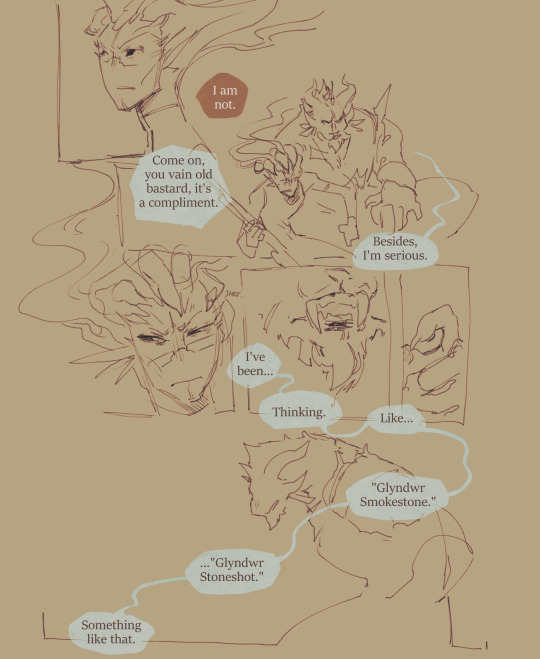

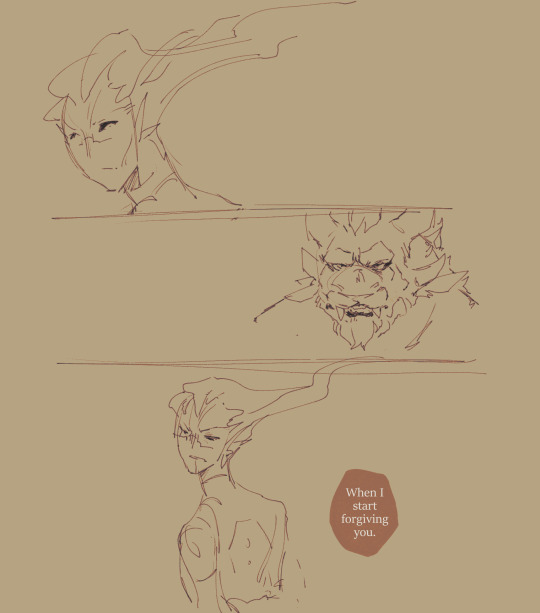
winding down tonight w some toxic glynlock 🖤 circa icebrood saga
#my art#my ocs#glyndwr#rytlock#glynlock#do you ever think about how nobody ever apologizes to a sylvari commander for anything they say during HoT.#because i do.#also: the solution to 'i wanna draw glynlock but drawing charr takes me too long'?#keep rytlock out of frame as much as possible and make him a stylish wobbly line drawing if i cant!!!!
191 notes
·
View notes
Photo

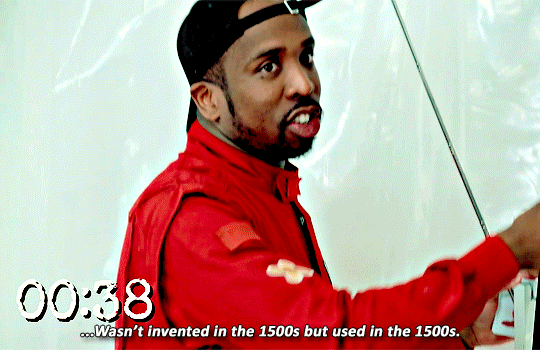

#taskmaster#taskmasteredit#chi gifs#full disclosure i did recolour this to more accurately reflext kiell's skintone. was extremely lazy in colouring the first time#+ it wont happen again. apologies! (nobody asked me to do this etc im just righting mistakes)
871 notes
·
View notes
Text
You know what's insane bananas bonkerballs? After 118 years together, Spike STILL was getting Drusilla Valentines Day gifts. He is out there acquiring the most gaudy gorgeous necklace for his lady love after a century of acquiring gaudy gorgeous jewelry. Wife guy of all time.
#who is wifeguying like him nobody thats who#he gets buffy the whole nine yards of cheesy valentines day gifts their first one together#roses chocolates teddy bear holding a heart that has 'i love you beary much' embroidered on it#locket on a chain with pictures of dawn and joyce inside#and buffys brain shuts down#shes clutching the bear to her chest and sobbing and spike thinks she hates it all and him and starts apologizing#but buffy cuts him off by jumping on him and kissing him and it ends up being the best valentines day either of them ever have had
90 notes
·
View notes
Text






male depression symptoms post (+ heinkel, hi heinkel :))
#hellsing ultimate#hellsing#alucard#walter c dornez#heinkel wolfe#with my apologies to old friends senior dog sanctuary. but not really. they were real for this one.#***txt#i think some of walt’s issues stem from the fact nobody’s making a gun to specifically kill him or anything..
148 notes
·
View notes
Text
Ch II. On My Own - Page 8
Tower of Mistakes


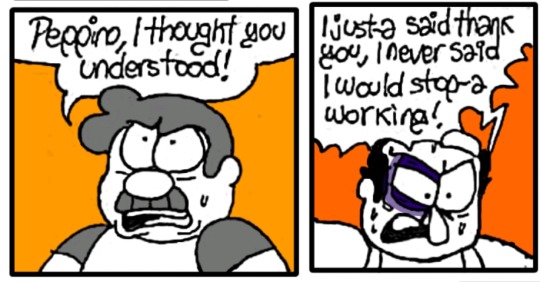
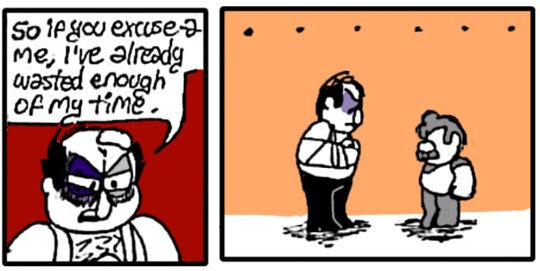
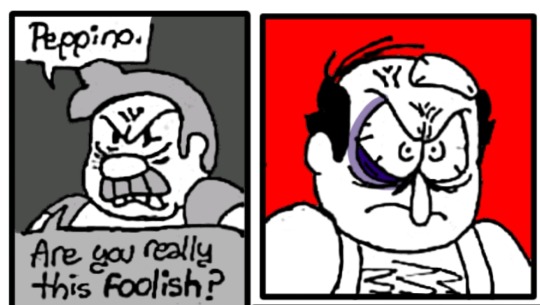
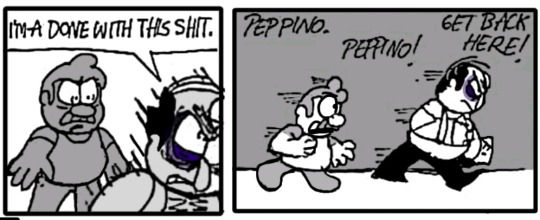

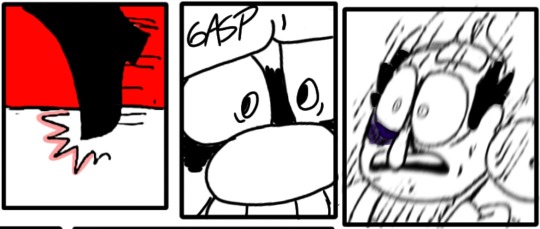

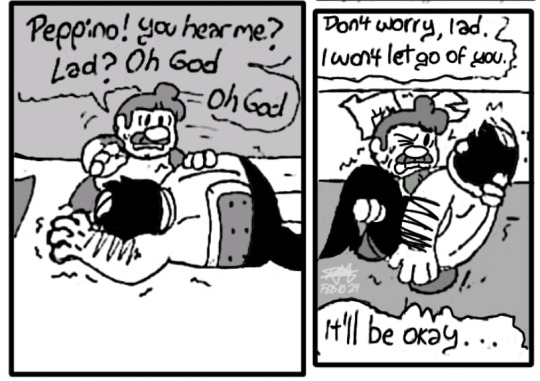
First - Previous - Next
Join the Discord!
#Apologies for taking long. Now have two lil guys figthing (gone wrong)#angry guavo jumpscare#it was about time gustavo snapped. even if it's just a little. HE'S ALSO GOT FEELINGS MAN#MAN.#pain lol#peppino just grabbed his shirts and said aight imma head out#only peppino thinks he can just mach 3 out of the room like this#BRO WHY DOES NOBODY LISTEN TO GUSTAVO#LOOK THIS IS WHAT HAPPENS WHEN YOU DON'T LISTEN TO GUSTAVO#the stubbornness#had so much fun drawing this page in vc with the server#but oh I was really struggling to get the tablet's camera to record my sketchpad 💀#pizza tower#art#peppino#gustavo#pt gustavo#tower of mistakes#pt#pt au#ToM#ToM au#pt ToM#comic#pt comic#pizza tower comic#pizza tower art#pizza tower au#pizzaposting#radaverse
106 notes
·
View notes
Text
Last year, Kasai Jun was interviewed as part of the interview project DEATH, which interviews various people about death in order to find a better understanding of how to live and appreciate life.
I thought it was a fascinating interview, so I decided to translate it.
Please go visit the original interview - the photography accompanying it is absolutely gorgeous.
Also, please don't repost this whole translation elsewhere. If you want to quote an excerpt of my translation for something, please make sure to also credit the original team behind this interview and link back to the original interview.
Deathmatch Fighter Kasai Jun - 4/27/2022

“It’s not a deathmatch until you return home alive” The reason this 47 year old Charisma Wrestler continues to shed blood in the ring
Within pro wrestling, there is a genre called “deathmatch.”
An extreme set of rules that allows deadly weapons and has no disqualifications. Brawls with fluorescent light tubes, and dives onto barbed wire boards. Without hesitation, wrestlers stab their opponents in the head with fistfuls of bamboo skewers. When wound-covered bodies violently collide, shards of glass and sprays of blood shower the ringside seats.
Upon first seeing it, surely everyone thinks “Why are these people hurting each other like this?” “What the hell am I looking at?”
This is the world of the man known as “Charisma,” professional Wrestler Kasai Jun of the independent promotion Pro Wrestling Freedoms.
In November of 2009, he had a “razorblade board plus alpha deathmatch” against Ito Ryuji in Tokyo’s Korakuen Hall. Kasai, 35 years old at the time, dove from the second floor balcony, a fall of 6 meters, onto a table, aiming for his opponent Ito.
Afterwards they continued to fight with various weapons, in a match that concluded 15 seconds before the 30 minute time limit. That year, this match was awarded the Best Bout award. And Kasai, the winner of that match, became a living legend overnight.
12 years have passed since then. Kasai is now 47 years old, and he continues to rule over the world of deathmatch wrestling. Under the weight of many literal life-or-death battles, Kasai’s body no longer moves the way it did when he was young. Even so, why does he continue to set foot in such a dangerous place?
We asked “Charisma of Deathmatch” - a man who makes the crowd go mad in the space between life and death - about his views on death and on life.
Desiring to truly feel alive
- Normally, people try to avoid pain and suffering. Kasai, why do you continue to shed blood in the ring?
Hahaha. From an outside perspective, you must really wonder “Why do you keep doing something so painful” huh? That’s a normal way to feel. But from the wrestler’s perspective, it’s completely different.
In your normal daily life, do you ever feel like “Ahh, it’s so glorious to be alive”? You’d almost never unconsciously blurt out something like that.
But in a life or death battle in a deathmatch ring, after you step down from that ring, that’s exactly what you feel. “Ahh, I’m alive. I’m so grateful to be alive.” Because of that, I can’t quit.
Mountain climbers and stuntmen probably feel like this too, don’t they. Stepping into a situation where their life could end, and returning home safely. I wonder if they’re searching for that feeling of being “truly alive.”
This feeling is passed on to the audience too. Fans often tell me “Watching Kasai Jun’s deathmatch gives me the strength to continue forward.”
They say things like, “I’m being bullied at school so I wasn’t going to go any more, but now I feel like I can keep going.” Or, “It’s exhausting to keep going to work, but after seeing Kasai persevere while shedding blood in the ring, I can persevere and keep going to work.”
Recently I can’t do this much because of covid, but in the past when I’d sell merch, fans would often say things like this to me.
Because of this, it seems to me that deathmatch wrestling is simultaneously a way for wrestlers to feel truly alive, and a way for those who watch it to feel more positively about living.
- Because of the sensational way “death” is shown in the ring?
Probably, yeah. Because it looks like we’re doing something really painful.
But don’t get me wrong. We aren’t in a particular hurry to die. And we aren’t wasting our lives either. What I always say is, “It’s not a deathmatch until you return alive.”
[Note from me - this phrase (生きて帰るまでがデスマッチ) is a play on a well-known Japanese phrase 家に帰るまでが遠足 “The field trip isn’t over until we return home.” This started as something a teacher would say to students in their care, and Kasai has altered it into his motto towards both himself and other deathmatch wrestlers.]
- It’s not a deathmatch until you return alive.
If you get in a ring where you might die or get seriously injured, and you do die, or you do get seriously injured, you’re no different than a rank amateur, right? But a guy who dives into a deadly dangerous situation and returns from that ring unharmed, he’s the absolute greatest and the absolute coolest.
Like a stuntman, right? If he returns home alive, people say “amazing,” but if he dies, he’s no longer a pro.
At 35 years old, his view on life did a complete 180 during a match
But, when I was young, I thought about it completely differently. I never thought “I’m grateful to be alive.” In the ring, I did dangerous stuff and defeated my opponents. I just thought of it as my job.
The more dangerous stuff I did, the more people said “Kasai is amazing!” That felt really great. Every time I stepped into the right I thought, if something goes wrong and I die I guess that’s how it goes. I thought “Deathmatches should be a memento mori.”
- What caused such a big change in your values?
That match against Ito Ryuji in Korakuen, in 2009. It changed my mental state by 180 degrees.
The truth is, I went into that match thinking “This is my last match before I retire.” Because it was my last match, I would do everything I wanted to do. Win or lose, I went into the ring thinking “I’ll retire.”
But during the match, my feelings completely changed. I thought “If I quit like this, I’ll be half-dead.” There’s nothing else I want to do, and I’ve never felt joy like this anywhere else. It was just too much fun.
So, after the match ended with 15 seconds remaining, I announced my decision to continue wrestling. “I was thinking of retiring but, I’m gonna keep going.” That’s what changed.
- Since your values have changed so significantly from when you thought it’d be good to die in the ring, what’s your “ideal death” now?
Spending the day with my family as I always do, watching tv with an after-dinner drink as I always do, getting comfy in my futon as I always do, and passing away. That’s the best death, isn’t it.
I’ve said it before but, people who say “It’s my ambition to die in the ring” are just trying to look cool. For a pro, it all comes down to returning home alive. And so, I believe that when the life of Kasai Jun the human being comes to an end, Kasai Jun the wrestler will die as well. I want to be a pro wrestler until I die. That’s how I feel now.
When I was young, I thought the best time for a wrestler to retire was when he could still move, when people would say “It’s a shame, because there’s still more he can do.” But if that’s true, I’ve already missed my best time to retire.
Since I’ve come this far, maybe it’s better to keep doing this until my death. Since around the time I turned 40, I started thinking this way.
Gaining years = leveling up. I’ll reach my peak just before death.
- Since you’ve been doing this for so long, it’s inevitable that your body has become weaker. Kasai, how have you dealt with aging?
The word “elderly” is a concept created by human beings, isn’t it? Since that’s the case, I believe it’s something we can absolutely overcome. I don’t think increasing in age is the same as becoming elderly.
Look, it’s true that my physical stamina has decreased and my muscles have gotten weaker than they were when I was younger. But my will and my spirit have continued to grow. Instead of just breaking even, I think I’ve leveled up. 47 years old is level 47. I now see growing older as a positive, like leveling up every year.
Because of that, my peak has yet to come. I’ll reach my peak just before I die. I’ll be at my strongest just before my death. That’s the ideal I envision for myself.
There was a time when I felt insecure about my age. When I hit my mid 30s, I hated that my body was becoming weaker.
But then, while drinking at home and watching a documentary on TV about (rock musician) Yazawa Eikichi, I realized something. “If you think about it, uncool young people are uncool, and cool guys are cool even if they’re old.” Since then, my way of thinking changed. I started calling getting older “leveling up” at around that time.
[Note from me: Suzuki Minoru also refers to getting one year older as “leveling up” in the exact same way. They are friends, so I assume Suzuki got it from Kasai.]
- I'm surprised that a pro athlete who uses his body as a weapon would think of aging in that way.
Pro wrestling and deathmatch are unique among sports. Unlike say, track and field, or swimming, it isn’t a competition where every second counts. I can’t move the way I could when I was young any more, but through my facial expressions, pauses during matches, and so on, I have many ways to express myself.
A guy can be handsome, macho, with great muscles, and completely suck as a wrestler. In contrast, a guy like me who’s ugly, short, and middle-aged, can get support from the fans. It’s a completely different genre, and that’s what makes pro wrestling so interesting.
- What about your emotional struggles? In your documentary film you said you were having some difficulty maintaining your motivation, which you described as “Deathmatch Erectile Dysfunction”
Yeah, well, that can definitely be a problem. When you’re young, you’ve just got piles of hopes and dreams and things you want to do. But as the years go on, and as you accomplish those things, you can kind of get lost.
What’s helped me increase my motivation has been the existence of people who make me think “I absolutely don’t wanna lose to this guy” or “I don’t want this guy to take all the best stuff for himself” In my case, for example, that’s been (fellow PW Freedoms deathmatch wrestler) Takeda Masashi. Or, although he’s from another organization, New Japan Pro Wrestling’s El Desperado.
That’s why for the past 3 or 4 years, I’ve been asking people to “stimulate me.” I want intimidating people to keep approaching me. Well, on the other hand, if they take the most delicious part for themselves, that’s a problem.
A fear of death led to a “selfish life”
- Incidentally, perhaps it’s too late at this point, but do you worry about being injured or dying?
I said it already but, “It’s not a deathmatch until you return alive.” Since I’m a pro, I have the skills required to do this without death or injury.
But, it’d be a lie to say “I’m not afraid.” Even now, for several days before a match I get so stressed that I can’t sleep. Despite how I look, I get plenty scared. Much of my life has been driven by a strong fear of death.
- How do you mean?
It sounds silly, but when I was in grade school I believed in “The Prophecies of Nostradamus.” Have you ever heard of it? “In the year 1999, all of humanity will be destroyed.” Every night I shook with fear in my futon, thinking that my life would end at the age of 24.
Propelled by that fear, I concluded, “If the earth is gonna get destroyed anyway, I should quit studying. Instead I should use the rest of my remaining lifetime to do stuff that I like.” I completely quit studying, and instead spent all my time watching pro wrestling, which I loved.
Conversely, my fear of death also led me to become a pro wrestler. After graduating high school, I got a job in Tokyo as a security guard, but I gave into temptation and visited brothels daily. One day I happened to be reading a magazine with an HIV checklist inside, and almost every item applied to me.
At that time, I still thought “AIDS = death” so I thought “Oh, this is AIDS.” “Oh, this is how I’ll die.”
Luckily, when I got tested the result was negative, but after preparing myself for death, I thought “I really should do what I want” and knocked on the door of Big Japan Pro Wrestling. My life has always been influenced in this way.
- I get the impression that many wrestlers die at an early age. Since then, your fear must have increased.
Nah, that’s not really true. I’m surprisingly practical about the deaths of others. I just accept it, like “That’s the kind of life you lived.” I suspect my fear of death isn’t a fear of death itself, but a fear of becoming nothing.
- A fear of becoming nothing.
I’m no (actor and spiritualist) Tanba Tetsuro, but if after you die, you go to the spirit world, and cross the Sanzu river, that’s not all that scary is it? I wouldn’t go so far as to say “it’s fine if I die” but there’s some kind of hope or meaning. But if “After death, you become complete nothingness” “After death you feel no joy or sadness” I think that’s really scary.
But these days, I don’t experience that fear of death as much as I used to. If after this interview a dump truck hits me and I die, I wouldn’t have any regrets. I could say I did what I wanted to do.
Pro wrestling is a business where you depend on your popularity with an audience, but I’ve never tried to flatter the audience to get sales or support, or thought about how to increase my popularity. Ultimately, Kasai Jun puts himself first. I’m my own number one.
To die without regrets is to win at life
- But, if someone wanted to imitate your way of life, I think most people would be profoundly afraid of not getting by financially, or of being rejected by society. Why do you think you remain stoic in the face of such fears?
What’s there worth imitating about me? If you’re selfish like me and you can change it, you should want to!
But, this is probably related to that “fear of becoming nothing” I mentioned earlier. Ever since I was little, I’ve thought stuff like “This whole world isn’t real” and “Maybe all of this is just a dream.”
Nothing in this world is certain. Since that’s the case, all you have are your own body and your own feelings. In short, I don’t believe in anything but myself, so I put myself first.
- So in order to “feel truly alive” you throw yourself into the painful world of deathmatch wrestling, which leads us back to where we started.
That’s right. I guess you could say that pain is the only thing I believe.
But when I was young, I did understand the fear of not making enough money to survive. When I was around 30 and my son had just been born, I was seized by that fear.
Really, I was broke, and I couldn’t even pay into the National Pension Fund like I was supposed to, so I went to the ward office and said “I do intend to pay, so please wait a little.” I thought to myself, “Living is so expensive and so difficult.”
- A deathmatch fighter scary enough to quiet a crying child, with such an everyday problem.
Three years after my debut, when I was around 27, I was badly injured. I quit Big Japan, and after a year’s absence, I transferred to a different group called Zero-One.
Zero-One was founded by ex-New Japan Pro Wrestler Hashimoto Shinya, and the pay was good compared to Big Japan, and they held a lot of shows, so I could wrestle frequently. The environment there was very pleasant.
But, due to the policy of the organization, I couldn’t do the deathmatches that I love. During that time as a “salaryman wrestler,” I survived, but I think deathmatch fighter Kasai Jun, pro wrestler Kasai Jun, was completely dead.
“I really should do the pro wrestling I want to do,” I thought, and I quit Zero-One, and persisted with the pro wrestling that I love. Maybe that’s why I feel like I can now “die without regrets.”
Ultimately, if you live your own life as you wish, and think “I have no regrets” when you die, you win. Maybe people today have lost sight of the essence of what it means to live. It’s fine to work hard at your job, but if you’re spending every day miserably, is that kind of life really okay with you?
I’d rather live for 20 years and laugh every day than live for 100 years and never smile. If you’ve lived for 100 years and never laughed, that’s the same as being dead, isn’t it?
~
写真:本永創太 ~ Photographer: Motonaga Souta
執筆:鈴木陸夫 ~ Author: Suzuki Atsuo
編集:日向コイケ(Huuuu)~ Editor: Hinata Koike (Huuuu)
#kasai jun#jun kasai#pw freedoms#pro wrestling#deathmatch#my translation#This is definitely the longest thing I have ever attempted to translate!#I've got nobody checking over my work or anything like that so as always apologies for any typos or errors that I didn't catch
280 notes
·
View notes